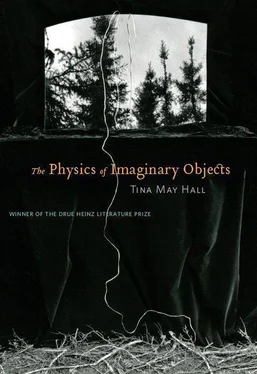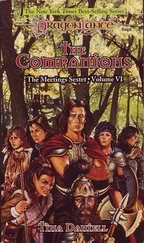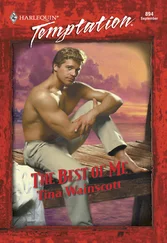Tina Hal - The Physics of Imaginary Objects
Здесь есть возможность читать онлайн «Tina Hal - The Physics of Imaginary Objects» весь текст электронной книги совершенно бесплатно (целиком полную версию без сокращений). В некоторых случаях можно слушать аудио, скачать через торрент в формате fb2 и присутствует краткое содержание. Год выпуска: 2010, Издательство: University of Pittsburgh Press, Жанр: Современная проза, на английском языке. Описание произведения, (предисловие) а так же отзывы посетителей доступны на портале библиотеки ЛибКат.
- Название:The Physics of Imaginary Objects
- Автор:
- Издательство:University of Pittsburgh Press
- Жанр:
- Год:2010
- ISBN:нет данных
- Рейтинг книги:5 / 5. Голосов: 1
-
Избранное:Добавить в избранное
- Отзывы:
-
Ваша оценка:
- 100
- 1
- 2
- 3
- 4
- 5
The Physics of Imaginary Objects: краткое содержание, описание и аннотация
Предлагаем к чтению аннотацию, описание, краткое содержание или предисловие (зависит от того, что написал сам автор книги «The Physics of Imaginary Objects»). Если вы не нашли необходимую информацию о книге — напишите в комментариях, мы постараемся отыскать её.
The Physics of Imaginary Objects,
The Physics of Imaginary Objects — читать онлайн бесплатно полную книгу (весь текст) целиком
Ниже представлен текст книги, разбитый по страницам. Система сохранения места последней прочитанной страницы, позволяет с удобством читать онлайн бесплатно книгу «The Physics of Imaginary Objects», без необходимости каждый раз заново искать на чём Вы остановились. Поставьте закладку, и сможете в любой момент перейти на страницу, на которой закончили чтение.
Интервал:
Закладка:
Frank liked to read books about far-off places, especially the parts about how the dead were treated. At dinner, he described urns of oil and honey, packets of food, candies in the shapes of skulls, blankets of marigolds and scores of clay servants. He said that in Vietnam, they built a hut over the grave and then replaced it a few years later with a wood house, nice as anything the living occupied. In Poland, there was a flurry of scrubbing of stone once a year, and flower sellers crowded the roads to the cemeteries. Some places, they built elaborate shrines at the graves and left pictures of new babies and pets, bowls of rice, candles, and little statues of birds and frogs. He had seen a photo of a tomb in New Orleans with a wrought-iron fence and a pile of bottles of whisky. They looked out the window at the quiet graveyard as they ate. A flag fluttered at one headstone; on another a blanched plastic wreath clattered. Beyond the graves, over the heap of the mountain, cows and horses grazed, and beyond that, teenage boys lay on their beds, drinking orange juice out of the carton, reading books about men who could fly.
During the years Lyndon studied geology at a neighboring branch of the state college, he still lived with Glynnis and Frank and still dug the weeds out of the cemetery every May. One winter afternoon, the day after a storm which dumped three feet of snow on the graves, Frank had a heart attack while Lyndon was in class learning about mass wasting. His professor explained the slow process of downhill creep, the affecting factors of soil type and vegetation and precipitation, and chalked on the board, angle of repose. Lyndon thought of the graves inching down the hill. When he came home that night, hands chapped from gripping the steering wheel against the icy roads, Glynnis had prepared nothing for dinner. Frank was in the hospital two towns over, and Glynnis and Lyndon sat at the splintery kitchen table and ate slice after slice of toast, laden with jam, as if they could not get enough sweetness to fill them. Glynnis told Lyndon that Frank was fated to die first because he was a man, because men's hearts are so big and unruly. Lyndon knew Frank had a girlfriend in town that he saw on Sundays, the day of the week the inhabitants of the sideways house turned invisible. Summers, Frank's girlfriend worked at the museum where Glynnis's quilts were sold, dressed in calico and churning butter. “Good money,” she always said when Frank put on her bonnet to tease her. He never brought her home; she said graveyards creeped her out because she didn't know where to stand. She didn't go to visit him in the hospital because it was winter and her bonnet was packed away. Glynnis, at the kitchen table, surrounded by empty jam jars, claimed her own heart was small as a walnut and thumped her chest so hard tears sprang into her eyes.
So it was a surprise when Glynnis died first, later that year, at the beginning of summer, when the leaves were still so tender Lyndon wished he was a deer. The doctor said she was riddled with cancer and charged sixty dollars to sign the death certificate. Frank died two days later from a massive heart attack while fishing with Lyndon. He flung his arm up to cast and hitched on the backstroke, sending the hook wildly into the air where it caught Lyndon on the earlobe and tore. Both men cried out in pain and Frank crumpled into the river, growing so sodden and heavy that Lyndon struggled to drag him out. It was only when Lyndon saw them laid out in the funeral parlor, side by side, that he realized they were twins. Frank's black wool suit and Glynnis's black wool dress were both too small for the corpses because they shrank in the dryer at the town laundromat where Lyndon had hurriedly washed them. It gave the illusion that the siblings were still children, outgrowing their clothes faster than anyone could afford. No one came to the viewing and there was no funeral; Glynnis's will stipulated cremation and scattering anywhere but the cemetery. The box Lyndon carried back to the house was flesh-colored plastic. Inside, the ashes were in a cellophane bag with a red-and-white-striped twist tie he recognized from bags of supermarket bread. He put the box in the kitchen window facing the road and went through the house, looking for secrets.
In the twins' bedroom he found two pairs of Frank's shoes. One scraped and worn through at the toe and one still in the box. The acrid scent of tanned leather and polish filled the room when Lyndon opened the lid. Glynnis's one pair of shoes, black leather lace-ups, had been burnt up with her. Under her bed, in a brittle dress box from the now-defunct department store in town, there was an assortment of linens with hand-crocheted trim and a blank space for the monogram. A virgin's hope chest. The pillowcases and tablecloths were white and fresh-smelling. She must have aired them in the sun each year and tucked them away again. The red Chinese cabinet had many awkwardly-sized drawers and a top that popped up as a vanity. The mirror was cracked, three jagged lines and one wedge missing. Lyndon could not recall when this had happened. He remembered Glynnis bouncing him in front of the mirror, the only one in the house except for Frank's pocket shaving mirror on the shelf in the bathroom. This is how the gentleman rides. The drawers were filled with screws and nails, old paper dolls, clippings from newspapers that seemed to have no unifying theme (a recipe for arthritis liniment, a letter to the editor about speed limits), calico scraps for a rag rug, shellacked red paper poppies from years of memorial days, two letters from their mother to their father when he went to a livestock auction out of town (I love you, dearest. The corn is higher than I've ever seen it.) , loose keys without markings, a Dixie cup filled with crumbling rubber bands. In the bottom drawer, their birth certificates, frayed at the folds. They both had their mother's maiden name, Southby, as their middle name. Lyndon could not think where else to look. The Chinese cabinet was the only closed piece of furniture in the house. In his room, a small nook wedged between the bathroom and the stairs, he traced the frets of his childhood and adolescent heights marked in pencil on the doorframe. He peered at the window to see where he had scratched his initials into the corner of the glass. On the floor, there was a large gouge where he had dragged the bed away from the wall the autumn he was afraid of ghosts. The bench at the end of the bed was piled with the quilts Glynnis had made for him over the years, wishing quilts she had called them, star-patterned, intricate as any map, corduroy-backed. Downstairs, there was nothing, just the usual sand in the corners of rooms, an inexplicable row of furry pellets on the mantle, the shelf of his textbooks, all marked in other people's handwriting. Rows and rows of jam jars stood proudly in the window, casting a red glow over the kitchen. They would last him years. It appeared he had been left at their door as a baby, hungry and anonymous, just as they had always told him.
Lastly, he went outside to examine the stoop. There was a cake and a foil pan of meatloaf on it. There was also a wreath of daisies interwoven with white clusters of wild dill. Ladybugs were swarming over it. The stoop itself was a substantial ledge of limestone worn down in the middle by years of stepping. He felt all the fibers of his unruly heart unwind as he looked at the infant-sized depression in the step. Every Saturday, Glynnis had lugged a kettle of boiling water outside to scrub the stoop. In the winter, the steam rose up in clouds. A trowel was rusting in the grass. Frank had been meticulous about his tools and the only time he had ever struck Lyndon was when the boy had left out a pickaxe all night in the rain. In the lean-to that held the shovels and rakes, Lyndon sanded the rust from the trowel blade and oiled it. The oil can clicked satisfyingly and gave off a happy scent that was part automobile, part eucalyptus.
Читать дальшеИнтервал:
Закладка:
Похожие книги на «The Physics of Imaginary Objects»
Представляем Вашему вниманию похожие книги на «The Physics of Imaginary Objects» списком для выбора. Мы отобрали схожую по названию и смыслу литературу в надежде предоставить читателям больше вариантов отыскать новые, интересные, ещё непрочитанные произведения.
Обсуждение, отзывы о книге «The Physics of Imaginary Objects» и просто собственные мнения читателей. Оставьте ваши комментарии, напишите, что Вы думаете о произведении, его смысле или главных героях. Укажите что конкретно понравилось, а что нет, и почему Вы так считаете.












